Do Squirrels Eat Birds? Squirrels are often depicted as cute, bushy-tailed creatures scampering up trees or nibbling on acorns. These rodents are familiar sights in urban parks, forests, and backyards, known for their playful antics and impressive agility. Most people associate squirrels with a vegetarian diet of nuts, seeds, and fruits. However, these animals have much more to offer than what appears on the surface.
While squirrels are primarily herbivores, their diet is not limited to plant material. This has led to the intriguing and often disturbing question: Do squirrels eat birds? You might be surprised by the answer to this question. While it’s not their primary source of food, there is evidence to suggest that squirrels do, in certain situations, eat birds and their eggs. The predatory behavior of squirrels has been observed across different species and in various habitats, challenging the traditional perception of these animals as harmless plant-eaters.
In this article, we will delve into squirrels’ complex dietary habits, explore why and when they might resort to eating birds, and discuss the implications for bird populations and ecosystems. By understanding these dynamics, we will gain a deeper insight into squirrels’ adaptive strategies and their interactions within their ecosystems.
Squirrel Diet: A Primarily Herbivorous Lifestyle
Squirrels are part of the Sciuridae family, which encompasses tree squirrels, ground squirrels, flying squirrels, and chipmunks. They are typically regarded as herbivores, with their diet consisting of nuts, seeds, fruits, fungi, and other plant-based materials. Acorns, walnuts, hazelnuts, and pinecones are among their favorite foods. Squirrels play a significant role in seed dispersal and forest regeneration as they bury seeds and nuts, some germinating and growing into new trees.
Squirrels’ Eating Habits
Squirrels are opportunistic feeders, meaning they will eat whatever readily available food. Their diet shifts with the seasons, depending on food availability:
- Spring and Summer: Squirrels primarily consume green plant material, flowers, fruits, and seeds.
- Autumn: This is the peak period for foraging and storing nuts, seeds, and acorns, which are crucial for survival during the winter months.
- Winter: When food is scarce, squirrels rely heavily on their food caches, digging up the nuts and seeds they stored in the fall.
However, while plant-based foods comprise most of their diet, squirrels are not strictly herbivores.
Evidence of Carnivorous Behavior in Squirrels
The Occasional Taste for Meat
Although squirrels are known for their love of nuts and seeds, they occasionally consume animal matter. Various squirrels, including the common Eastern Gray Squirrel, the American Red Squirrel, and the Fox Squirrel, have been observed eating bird eggs, nestlings, insects, and even small mammals in rare instances. While not common, these occurrences highlight their adaptability and resourcefulness when faced with limited food options.
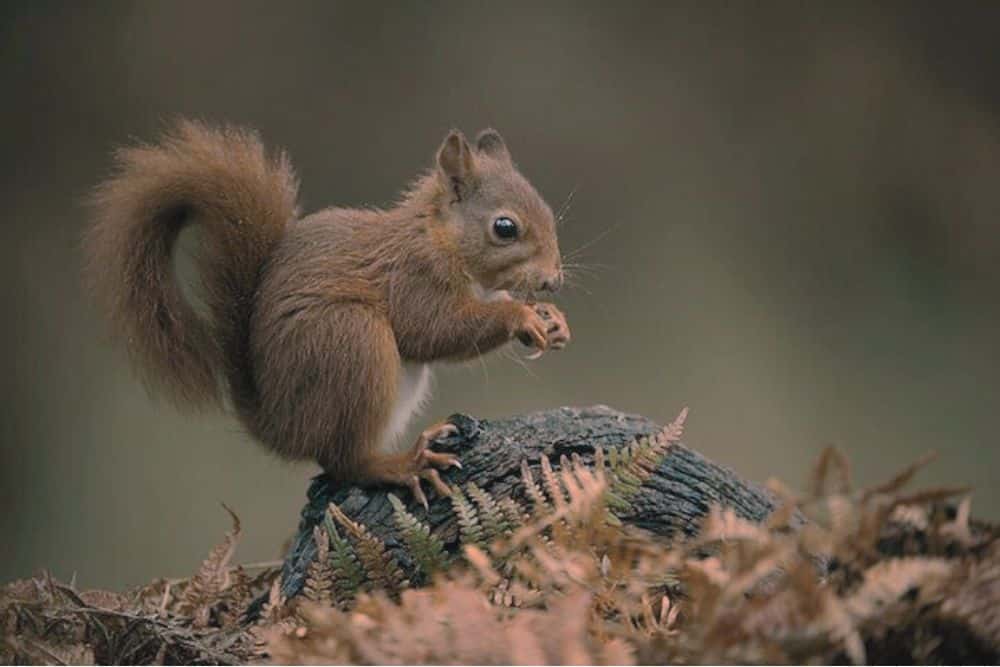
Instances of Predatory Behavior
Squirrels are most likely to prey on birds or their eggs during breeding when bird nests are abundant. Researchers and wildlife observers have documented cases where squirrels raided bird nests, ate eggs, or preyed on young nestlings. For example:
- Eastern Gray Squirrels: Known for their opportunistic feeding habits, they have been observed raiding the nests of smaller birds such as sparrows, robins, and warblers.
- Red Squirrels: Red squirrels are mainly known for their aggressive behavior and are likelier to exhibit predatory tendencies. They are notorious for raiding nests and eating eggs and young birds, especially when food is scarce.
- Flying Squirrels: Although less frequently observed, flying squirrels have also been known to consume eggs and nestlings when the opportunity arises.
Why Do Squirrels Eat Birds?
Nutritional Needs and Opportunistic Feeding
The primary reason squirrels sometimes eat birds is their nutritional needs and opportunistic feeding behavior. Squirrels require a balanced diet with essential nutrients, including protein, fats, and vitamins. While plant-based foods are their primary source of sustenance, animal protein can be an additional source of nutrition, mainly when their usual food sources are in short supply.
For example, when nuts and seeds are less available in early spring or late winter, squirrels may turn to alternative food sources. Bird eggs and nestlings present a readily available source of protein and fat, which can be crucial for sustaining squirrels during lean periods.
Resource Scarcity and Competition
In ecosystems where food competition is high, squirrels may need to expand their dietary choices to include animal matter. In specific habitats, squirrels compete with other small mammals, birds, and insects for food resources. As a result, they may turn to bird nests as an additional food source, mainly near human settlements where bird populations are abundant.
Behavioral Adaptations and Learning
Squirrels are brilliant and adaptable animals. They can learn and modify their behavior based on experience and environmental conditions. Squirrels that discover bird nests and successfully raid them will likely repeat the behavior in the future, developing a taste for eggs and nestlings. This learned behavior can be passed on to other individuals, leading to localized populations of squirrels that actively prey on birds.
Implications for Bird Populations and Ecosystems
While not their primary behavior, squirrels’ predation of birds can have implications for local bird populations and ecosystems. Understanding the dynamics between squirrels and birds is essential for conservation efforts and maintaining balanced ecosystems.
Impact on Nesting Success
Squirrels are known to raid nests of ground-nesting and tree-nesting birds alike. Their impact on bird populations can be significant, especially for species that build open nests in trees or shrubs. Small songbirds, such as sparrows and warblers, are particularly vulnerable to nest predation by squirrels. Squirrel predation can reduce the reproductive success of these birds, leading to declines in local populations over time.
The Role of Squirrels in Ecosystem Dynamics
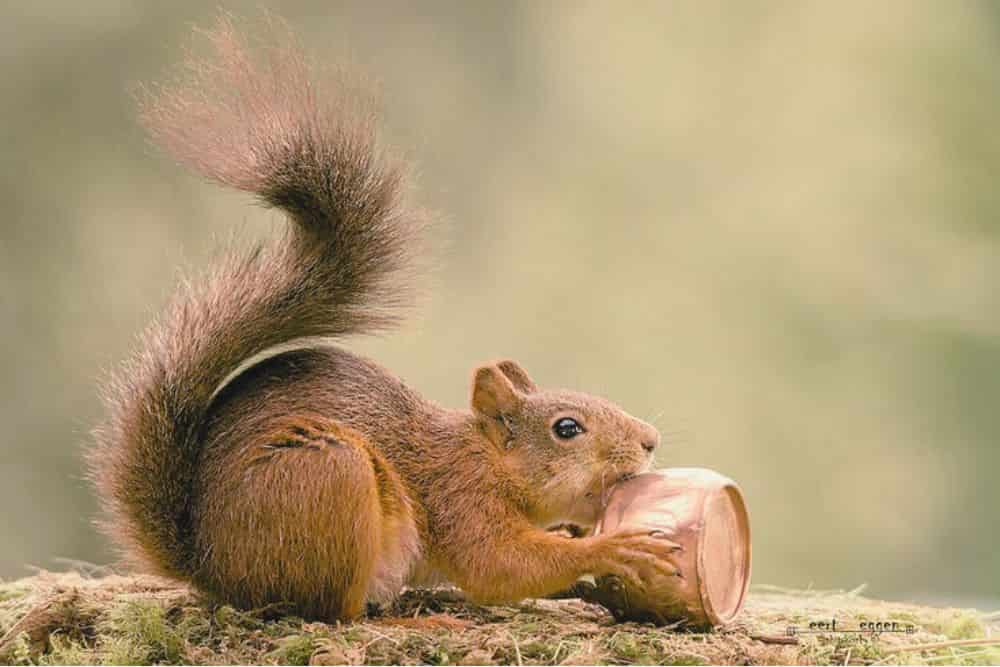
It’s essential to recognize that squirrels are not solely destructive predators. They play a complex role in ecosystems, acting as both seed dispersers and opportunistic predators. Squirrels help maintain forest health by dispersing seeds and promoting new tree growth, and they also contribute to regulating populations of other animals and insects.
Interactions with Other Predators
Squirrels are not the only animals that prey on bird nests. Small mammals, such as raccoons, weasels, and snakes, also threaten birds. In some cases, the presence of squirrels may divert the attention of larger predators away from bird nests, offering indirect protection to some species.
Observations and Research on Squirrel Predation
Research on the interactions between squirrels and birds has revealed fascinating insights into the complexities of predator-prey relationships. Wildlife ecologists have conducted studies using camera traps and direct observations to document squirrel behavior and its effects on bird populations. Some key findings include:
- Seasonal Variations: Squirrel predation on birds is more common during breeding when nests are abundant and easy to find.
- Nest Type and Location: Nests that are more exposed or built at lower heights are at higher risk of predation by squirrels.
- Squirrel Density: Areas with higher densities of squirrels are more likely to experience increased nest predation, leading to reduced breeding success for birds.
Coexistence and Conservation
The relationship between squirrels and birds is complex; both groups play essential roles in their respective ecosystems. While squirrels naturally exhibit opportunistic feeding behavior, there are ways to minimize their impact on bird populations, especially in urban and suburban settings where human activity has altered natural ecosystems.
Bird Conservation Efforts
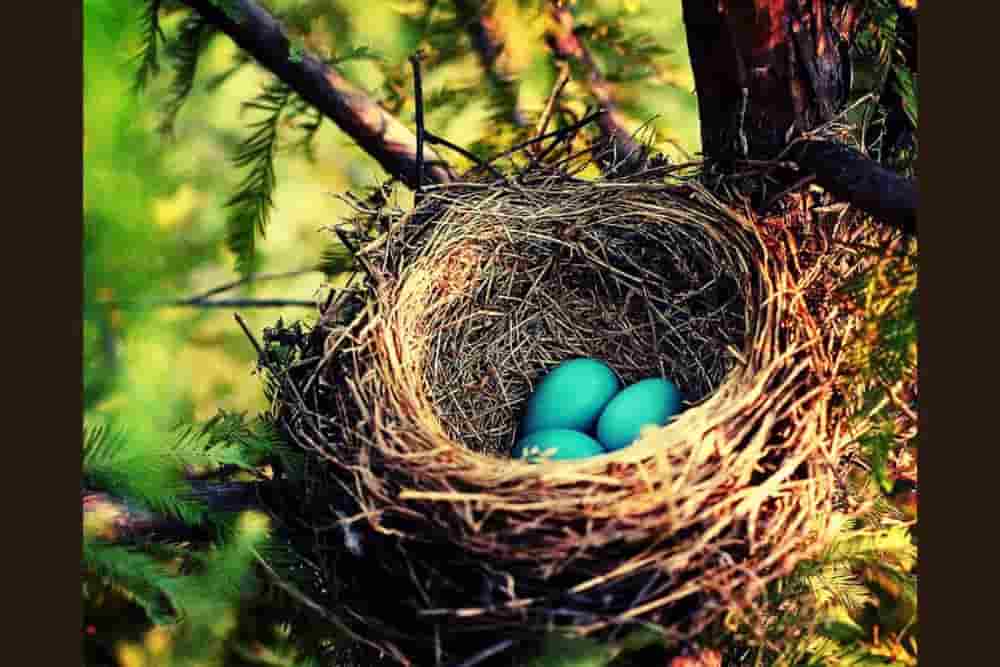
Bird enthusiasts and conservationists can take several steps to protect bird nests and enhance bird habitats:
- Nest Boxes with Squirrel Guards: Installing birdhouses or nest boxes with predator guards can help protect nesting birds from squirrel predation.
- Selective Feeding Stations: Providing separate feeding stations for squirrels and birds can help minimize competition and prevent squirrels from raiding bird feeders and nests.
- Habitat Management: Managing the landscape to create safer nesting environments for birds, such as planting dense shrubs and using bird-safe netting, can reduce the risk of predation by squirrels and other small mammals.
Understanding the Natural Balance
It is crucial to recognize that predation is a natural part of ecosystem dynamics. While it can be unsettling to witness squirrels eating birds or raiding nests, these interactions are a regular aspect of the predator-prey relationships that shape ecosystems. The conservation goal should not be to eliminate predation but to maintain a balanced ecosystem where squirrels and birds can thrive.
Conclusion
In conclusion, while squirrels are primarily herbivores with a preference for nuts and seeds, they are also opportunistic feeders that occasionally prey on birds and their eggs. Resource scarcity, nutritional needs, and environmental conditions drive this behavior. Squirrels are adaptable animals that can adjust their diet based on food availability, and their predatory behavior reflects this adaptability.
Understanding the interactions between squirrels and birds provides valuable insights into the complexities of ecosystem dynamics. Squirrels play dual roles as seed dispersers and opportunistic predators, highlighting their importance in maintaining healthy and balanced ecosystems. At the same time, predation by squirrels can have localized impacts on bird populations, particularly during the breeding season.
Conservation efforts should focus on creating environments where squirrels and birds can coexist harmoniously. By providing safe nesting sites for birds, managing habitats, and understanding the natural balance of predator-prey relationships, we can help ensure the long-term survival of squirrels and birds in our ecosystems.
Ultimately, the question of whether squirrels eat birds opens a window into nature’s fascinating and sometimes harsh realities. It challenges our perceptions of these seemingly harmless creatures and reminds us of the intricate web of life that connects all living beings. By studying these interactions, we gain a deeper appreciation for the natural world’s adaptability, resilience, and complexity.
Frequently Asked Questions
Is it normal for squirrels to eat birds?
Yes, squirrels do occasionally eat birds
Do squirrels eat live animals?
Tree squirrels are omnivores, meaning they eat both plants and animals.
What animals get rid of squirrels?
squabbit, a hybrid that results from a squirrel breeding with a rabbit
Do squirrels like coffee grounds?
Squirrels do not like the smell of coffee grounds




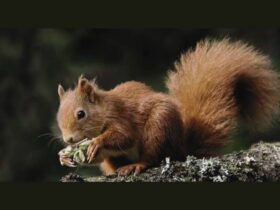
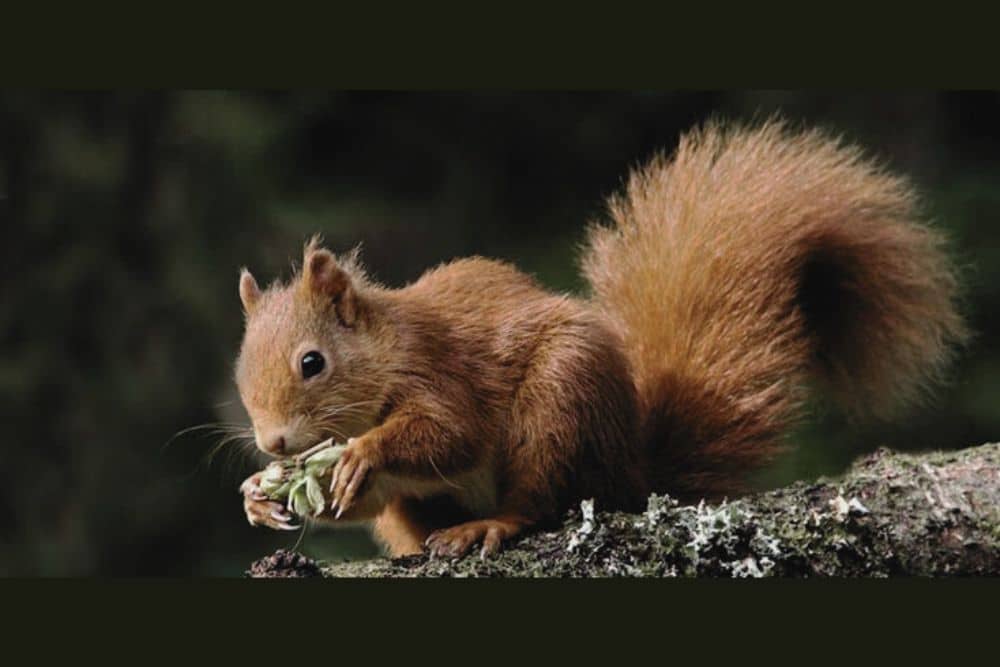



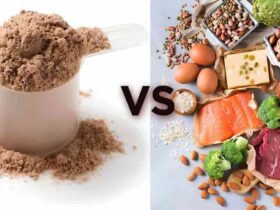
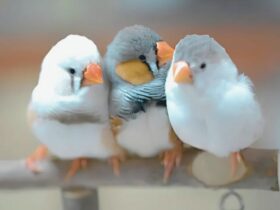
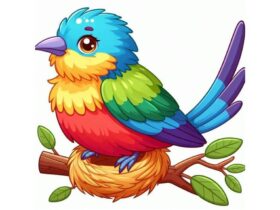
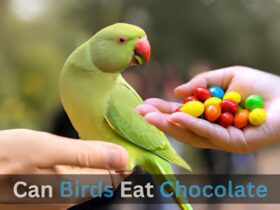

Leave a Reply